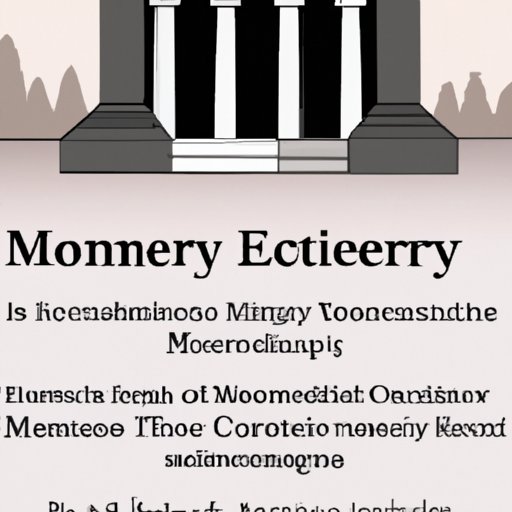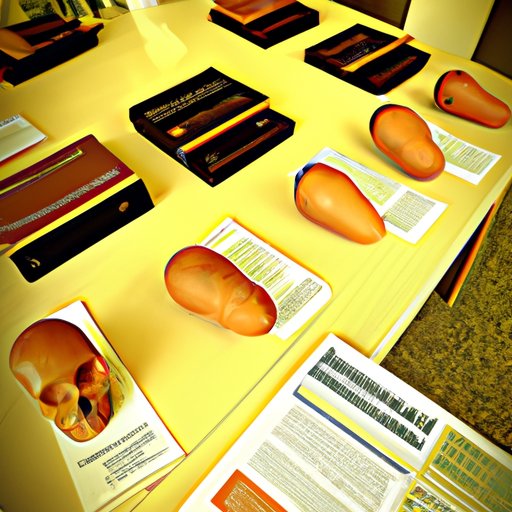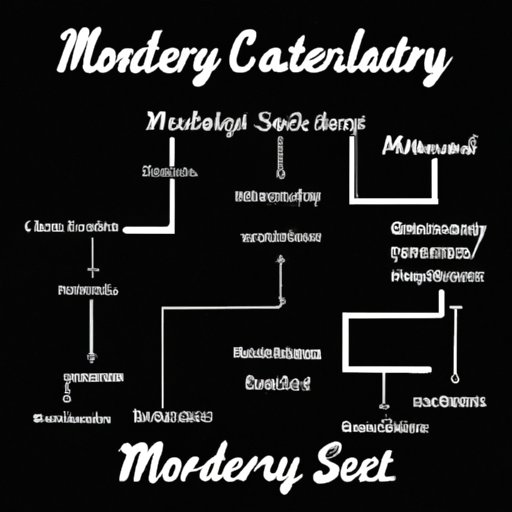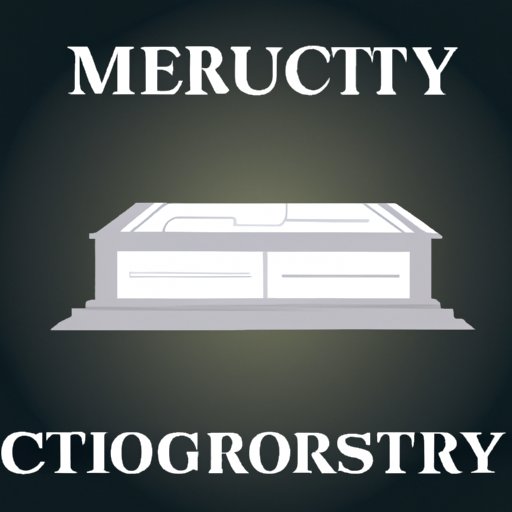Introduction
Mortuary science, also known as funeral services, is the study of death care and the practice of preparing and arranging for funerals. It involves caring for the deceased and providing families and loved ones with meaningful ways to honor their memory. As a profession, it requires a deep understanding of death, grief, and bereavement, as well as knowledge of the legal and practical aspects of funeral service.
The purpose of this article is to provide an overview of mortuary science and to explore the history and evolution of the field, the educational requirements for becoming a mortuary science professional, the various career paths available, the ethical considerations that are important to the profession, and the role of technology in modern mortuary science.

History and Evolution of Mortuary Science
Mortuary science has a long and varied history, stretching back to ancient times. In many cultures, funerals were elaborate ceremonies designed to honor the deceased and to celebrate their life. As religion became more prominent, funerals were often used as a way of expressing faith and belief in the afterlife. Over time, funeral practices evolved to reflect the beliefs and customs of different cultures and societies.
In the 19th century, embalming became a common practice in the United States and Europe. This was largely due to the rise of medical knowledge and advances in science, which allowed for the preservation of bodies for longer periods of time. As a result, funeral homes began to emerge and the profession of mortuary science was born.
Today, mortuary science is a well-established profession that combines the duties of a funeral director with those of a healthcare provider. Funeral directors are responsible for managing the logistics of funerals and memorial services, while healthcare providers are tasked with providing comfort and support to grieving families. In addition, mortuary science professionals must be knowledgeable about the laws and regulations related to funeral services and death care.

Education and Training Requirements for Mortuary Science Professionals
In order to become a mortuary science professional, individuals must meet certain education and training requirements. Most states require mortuary science professionals to have at least an associate’s degree in funeral service or mortuary science. Some states may also require additional coursework in anatomy, physiology, microbiology, and pathology.
In addition to academic requirements, mortuary science professionals must obtain a state license or certification in order to practice. Licensure requirements vary by state, but typically include passing a written exam and completing a certain number of hours of on-the-job training. Many states also require continuing education to maintain licensure.

Career Paths in Mortuary Science
There are a variety of career paths in mortuary science, ranging from funeral directors to embalmers to crematory operators. Funeral directors are responsible for planning and coordinating funerals, memorial services, and burials. They work with families to arrange for the disposition of the body, select the appropriate casket, and plan any necessary commemorative events. Embalmers are responsible for preserving, sanitizing, and preparing bodies for burial or cremation.
Crematory operators are responsible for operating and maintaining cremation equipment. They also oversee the cremation process and ensure that all safety protocols are followed. Other career paths in mortuary science include grief counselors, morticians, and medical examiners.
Pursuing a career in mortuary science can be rewarding and fulfilling. Mortuary science professionals are able to provide comfort and support to families during difficult times, and they play an important role in honoring and celebrating the lives of the deceased.
Ethical Considerations in Mortuary Science
Mortuary science professionals must adhere to strict ethical standards. They must treat the remains of the deceased with respect and dignity, regardless of religious or cultural beliefs. In addition, they must strive to provide meaningful and compassionate care to grieving families.
Another important ethical consideration is the responsibility to protect the privacy of the deceased. Mortuary science professionals must take measures to ensure that confidential information, such as medical records, is not shared without permission. Finally, they must be aware of and sensitive to cultural and religious beliefs regarding death and mourning.
The Role of Technology in Mortuary Science
Technology plays an increasingly important role in modern mortuary science. Digital tools are being used to streamline processes and improve efficiency. For example, funeral homes are using digital platforms to manage client information and to provide online payment options. This eliminates the need for paperwork and makes it easier for families to handle the arrangements.
In addition, automation is being used to reduce costs and increase productivity. Automated embalming machines are becoming more widely used, and they can significantly reduce the amount of time needed to prepare a body for burial or cremation. Similarly, robotic crematoriums are now being used to automate the cremation process.
Conclusion
Mortuary science is a fascinating profession that combines the art of funeral services with the science of death care. It requires a deep understanding of death, grief, and bereavement, as well as knowledge of the legal and practical aspects of funeral service. Those interested in pursuing a career in mortuary science must meet certain educational and training requirements, and they must adhere to strict ethical standards.
Technology is playing an ever-increasing role in mortuary science, from digital tools to automate processes to robotic crematoriums. As the industry evolves, mortuary science professionals must stay up-to-date on the latest developments and trends in order to provide the best possible care for grieving families.
For those interested in learning more about mortuary science, there are numerous resources available, including books, websites, and professional organizations. By exploring these resources, individuals can gain a better understanding of the profession and determine if it is the right path for them.
(Note: Is this article not meeting your expectations? Do you have knowledge or insights to share? Unlock new opportunities and expand your reach by joining our authors team. Click Registration to join us and share your expertise with our readers.)
